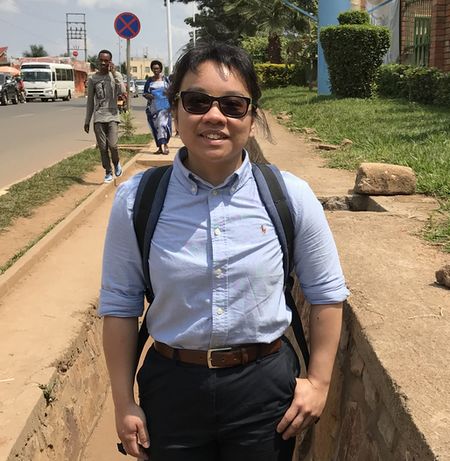Co-creating a doctoral community as a pedagogical space for holistic researcher development: Praxis for improving practice
Pui Ki Patricia Kwok, Camilla Hadi Chaudhary, Basirat Razaq-Shuaib, Nidhi Singal, Thilanka Wijesinghe, Stephanie Nowack, University of Cambridge
This paper highlights how a co-created Research Group (RG) redefines the pedagogy for doctoral researcher development. Facing abrupt disruptions to our research and studies in the pandemic, all of us were ill-prepared to be dispersed across various continents. Aspiring to build a caring community in response to both well-being and learning needs, the RG has emerged to forge an inclusive, relational and interdependent partnership among 14 doctoral and post-doctoral researchers.
Collectively valuing post-colonial principles, such as research being a relational partnership rather than an extractive act, we argue that formal methodological training has insufficiently equipped researchers with the holistic attributes required for reflective ethical practices. We reflect on how this RG has evolved to provide a pedagogical space for praxis (Freire, 1970) and complement existing doctoral research training. We draw on Nel Noddings’ (1992) four principles on moral education to reflect on some of our collective learnings.
Firstly, modelling through informal mentoring in the RG has led to a reimagination of power hierarchies different from the usual supervisor-supervisee relations and among students from different backgrounds. This has informed the possibilities of building truly democratic relations in research processes. Secondly, through dialogue, we acknowledged our personal selves by honestly sharing experiences and emotions. This supported an acknowledgment of the self in research and how it plays out in multiple ways. Thirdly, in practice, through dialogue we recognized each other’s biases. This helped to develop reflexivity as a mentality integral to all phases in qualitative research. Lastly, our continual engagement through modelling, dialogue and practice led to the confirmation of each other’s strengths to be built on. This has been liberating in understanding our own values and strengths as researchers coming from vastly different cultural settings. By reflecting on, and enacting practice in line with our cherished values, we argue that collectively this Research Group has provided the intellectual safe space to make sense of what ethical research practice looks like in international education and development, beyond what is formally delivered in educational research teaching courses in Universities.
BAICE Conference 2022

